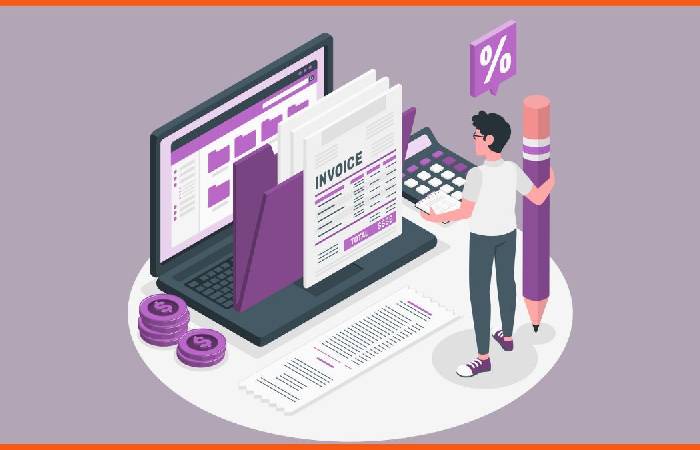Invoicing aspiring Entrepreneur – An easy way for a business to formally collect or send payments is an invoice. An essential element to keep track of the company is how the initial billing process for proper financing works. And some legal and budget issues can arise without accurate information that could affect the business.
Here’s an overview and guide to invoicing aspiring Entrepreneur
Table of Contents
What’s on the Invoice?

A simple invoicing aspiring Entrepreneur issued by a company to its customers will contain important details that reflect what happened in the transaction. Then, the business owner or seller will deliver the document to the buyer or client.
The invoicing will show the following information that is considered necessary:
- Organization name’s
- Address
- to whom is it sold
- Description of the service or product provided
- Prices and taxes added
- Payment terms made
- Commercial invoice or registration number
- Transaction date
The Purpose Of Invoicing
The main goal of billing is to provide the final record of all sales made to your stakeholders. With this, the company will immediately know what their customers have to pay them. It is like a payment agreement between the business owner and the person who uses their services.
Some of the uses of invoices for companies are:
Business Tax Records.
A business needs to keep track of its tax information. Therefore, a summary of all business transactions, including taxes, is record with the invoices.
Bookkeeping for Accounting.
Invoices are recorded and filed for your accounting. So accountants can keep track of some discrepancies or budgets for the business. And also earnings and income can also track here.
For Legal Purposes.
Invoices can help provide clients with authentic details about the firm’s legal services. Moreover, in case of legal problems, all invoices can explain the business.
Inventory Management.
Sales invoices will be the foundation of how your business will operate. And also the amount of stock and inventory required for purchasing can determine by tracking the received invoices.
General Invoice Types
There are some types of invoices that circulate through a company’s financial resources. All of these reflect transactions occurring between business stakeholders.
Here’s a general idea of the types of startup invoicing seen in businesses:
Public Service Bill.
All of these are for tracking the financial status of the company’s water, electricity, telephone and internet bills. And also these provide to let the business owner know what they need to resolve.
Credit Invoice.
This type of invoice records the price difference your company applied during the final payment.
Regular Invoice.
It is the most basic and common type of commercial invoice. And it is where the products and services. It reflect in the corresponding prices shown by the customer or business owner to necessary compromise.
The Correct Way To Organize Invoices
The billing process is pretty much the same for small, medium, or large businesses. You owe your business to send invoices so the company can collect payment.
Here’s a helpful overview of how to get beginner-friendly billing:
Capture Documents.
Actual billing should include the G/L code receipt. And also other important notes for tickets and purchase orders.
See Details.
Always verify important details as necessary, such as the name of the business establishment. And the date of payment is the accuracy of the information. About where or to whom the cost can send?
Send Invoices.
Know where to send the issued invoice, so it is approved and not rejected. And also this way, the amount collected or paid will be closed without problems.
